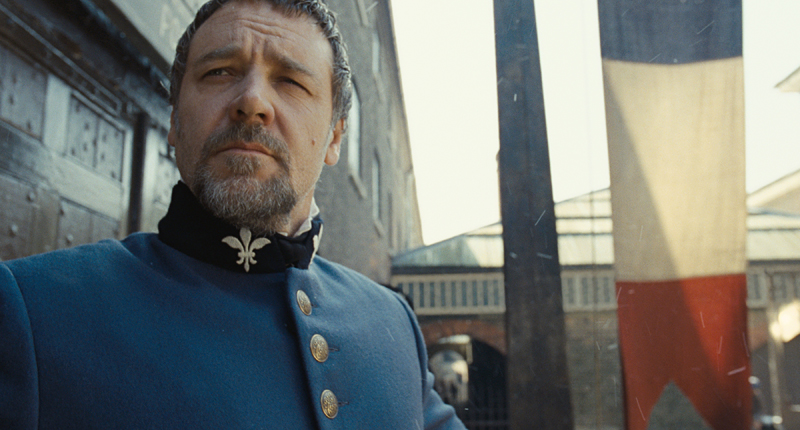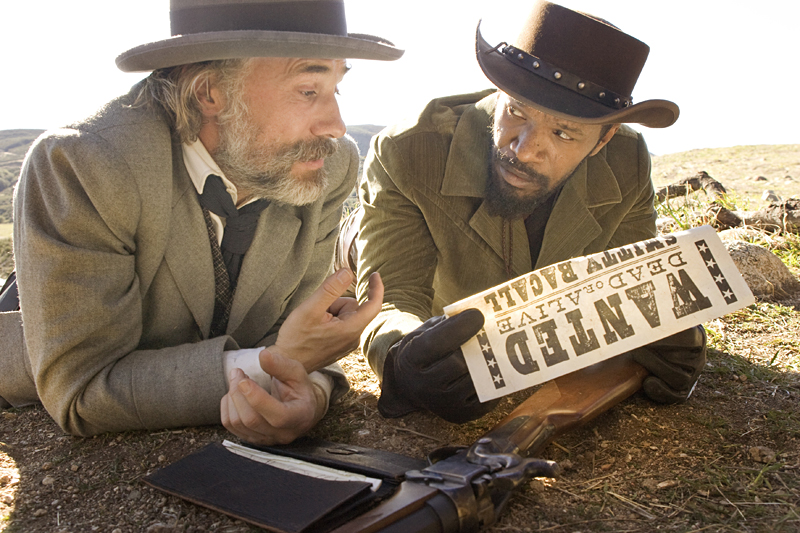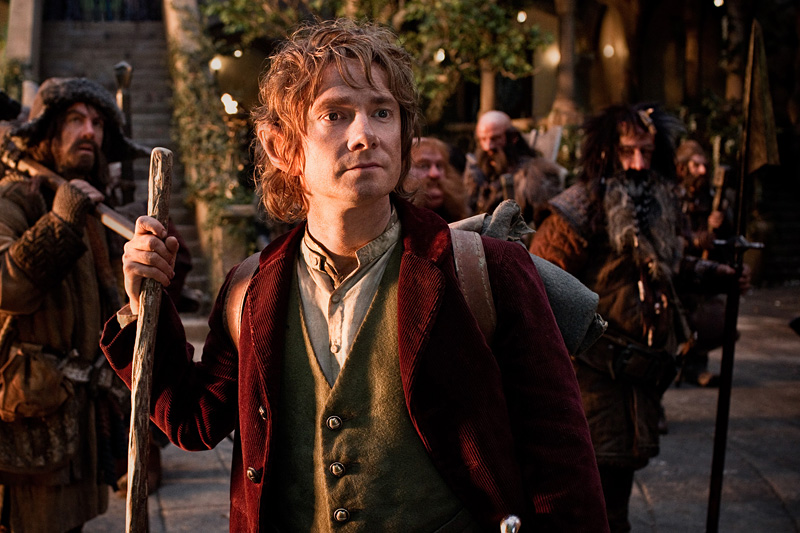In his big-screen debut, Homer Simpson utters the “D’oh!” heard round the world—or at least as far away as Washington, D.C. (which, given the unspecified coordinates of Springfield, might not be that far at all), where President Schwarzenegger and an overzealous EPA chief (voiced by Albert Brooks) rush to contain a Homer-instigated eco-crisis by encasing all of Springfield in a giant, impenetrable bio(hazard)-sphere, thus reducing America’s favorite cartoon hamlet to the world’s largest snow globe. Blame it, I suppose, on the pig—the adorable little oinker Homer saves from becoming tomorrow’s Krusty Burger, with whom he develops such an inseparable bond that you may feel as though you’re in for the Brokeback Mountain of animated bestiality movies, and whose prodigious pig poop is what gets Homer and Springfield into this whole giant mess in the first place.
And that is The Simpsons Movie in a nutshell—an 87-minute, years-in-the-making comic wind-up machine that begins by mocking its own audience for paying good money to see what it can watch at home for free and proceeds from there through the most wickedly funny arsenal of assaults on big government, organized religion, and corporate America this side of Borat (which, like The Simpsons Movie, somehow managed to use Rupert Murdoch’s money to do so). This, of course, has long been the beauty of creator Matt Groening’s two-decade-old television behemoth and bona fide cultural institution, where a firm grip of dysfunctional family values and the facade of kid-friendly animation have provided a fertile breeding ground for the kind of social satire that sails right over the heads of some while striking others squarely where they live.
In all fairness, The Simpsons Movie doesn’t exactly go where no episode of the TV series has gone before (unless you mean literally, to Alaska, in which case I stand corrected). Rather, what The Simpsons Movie does—and does extremely well—is revisit the series’ most enduring situations and themes, while upping the ante just enough to lend everything a new level of suspense. This time around, Homer’s doughnut-addled dunderheadedness doesn’t merely put his own family in jeopardy—it nearly causes Springfield itself to be wiped off the map. Meanwhile, even on the home front, the consequences are more dire: Duly humiliated after being bullied by Homer into a nude-skateboarding dare—one of several priceless gags unforgivably revealed in the movie’s trailer—Bart goes searching for a more stable father figure and nearly finds one in (egads!) Ned Flanders. And in a subplot that turns out to carry unexpected emotional weight, the ever-resilient Marge (voiced as usual by the redoubtable Julie Kavner) is forced to examine the very bedrock of her marriage to see if there’s anything there worth salvaging. That leads to a third-act monologue—for which longtime Simpsons writer-producer (and Terms of Endearment Oscar winner) James L. Brooks reportedly demanded more than 100 takes from Kavner—that is one of the deepest and most searching examinations of the meaning of “I do” that I’ve ever heard in a movie. It does the last thing you might expect The Simpsons Movie to do: It leaves you with a lump in your throat.
The Simpsons Movie has much else to recommend it, not least of all a wonderfully surreal, Dalí-like encounter between Homer and an Inuit medicine woman in the wilds of Alaska (don’t ask); and, after 18 seasons of seeing Springfield squeezed into the tiny parameters of the television frame, there’s an undeniable kick to the movie version’s vivid wide-screen compositions. But the most meaningful achievement of The Simpsons Movie may be its reminder that we don’t merely take pleasure in the weekly exploits of Homer, Marge, Bart, Maggie, Lisa, Grandpa, Patty, Selma, Milhouse, Flanders, Moe, Apu, Smithers, Mr. Burns, et al.; we look at them—yellow skin, blue hair, bulging eyes, and all—and see reflected back the best and worst of ourselves, and an uncannily accurate portrait of the modern American family.








